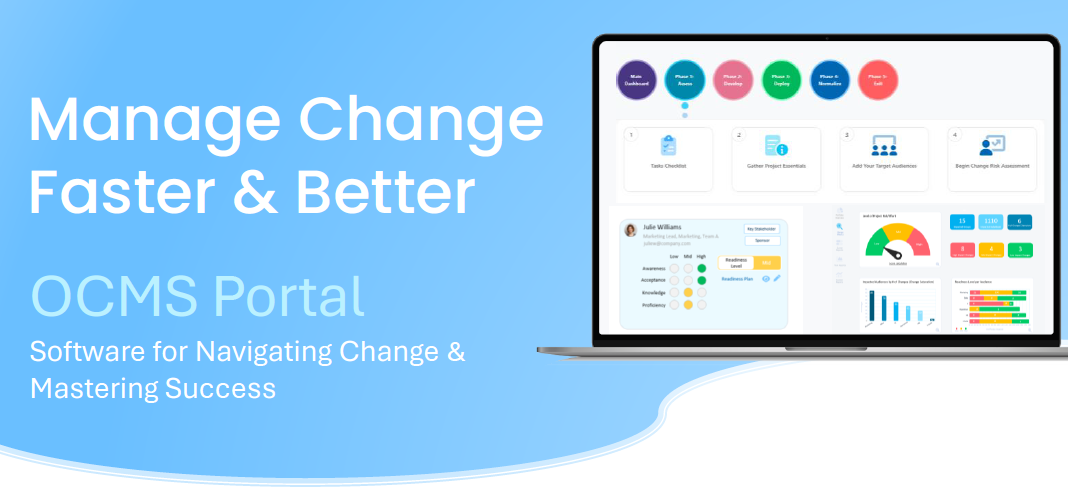Learn How to Address the Top Reasons Why Project Fail
The project management world is littered with the wreckage of failed endeavors. Statistics vary, but some reports suggest that upwards of 70% of projects fail to meet their objectives. These failures can be costly, leading to wasted resources, missed deadlines, and frustrated stakeholders. But why do projects fail exactly?

Understanding the root causes of project failure is crucial for anyone involved in project management. The answer to why does a project fail isn’t always one thing, it can be a combination of factors. By identifying these pitfalls, you can equip yourself with the knowledge and strategies to navigate projects toward success.
In this article, you’ll learn the five most common reasons why projects fail, along with actionable steps you can take to avoid them.
Watch a summary below:
Story Highlights
|
Why Do Projects Fail in Project Management?
Why do most projects fail? Project failures can stem from a multitude of factors, often intertwining to create a perfect storm of setbacks. One common thread through these challenges is often a lack of addressing the human component of the equation. The people that need to change their behaviors as a result of a project.
For example, the answer to, “Why do IT projects fail?” might be because the technicians in the IT department weren’t given proper guidance on how to manage a new system. Likewise, the explanation for “Why do software projects fail?” may be that users were never properly trained on a new software system, so they resisted the transition and went back to their old tools.
These common pitfalls underscore the importance of understanding the underlying causes of project failure and that it may involve a missing human component.
What are the most common reasons why projects fail? Here are the top five.
Reason #1: Lack of Clear Goals and Objectives
A project without a clear destination is like a ship lost at sea. Ambiguous goals and objectives leave room for misinterpretation and ultimately hinder progress.
Symptoms: Scope creep, missed deadlines, stakeholder dissatisfaction.
Solution: Define SMART Goals. Set Specific, Measurable, Attainable, Relevant, and Time-bound goals. These goals should clearly articulate what success looks like for your project. Break down broad goals into smaller, more manageable objectives with clear deadlines.
Change Management Connection: Effective change management emphasizes the “why” behind the project. Clearly defined goals provide a compelling reason for stakeholders to embrace the change and be invested in the project’s success.
Do you have any questions so far related to the question, “Why do some projects fail and others succeed?” or “Why do many digital transformation projects fail?” Please reach out and let us know.
Reason #2: Inadequate Planning and Poor Resource Management
Failing to plan is planning to fail. Without a well-defined roadmap and a realistic assessment of resources, projects can quickly veer off course.
Symptoms: Budget overruns, delays in execution, team burnout.
Solution: Develop a Comprehensive Project Plan. This plan should outline project scope, timelines, milestones, resource allocation, and risk assessments. Identify potential risks and develop contingency plans to mitigate them. Ensure the plan is realistic and reflects the available resources.
Change Management Connection: Change management can help assess the impact of the project on various stakeholders (or whether there is one) and ensure the availability of resources needed for communication, training, and support during the change process.
Why do projects fail or succeed? It’s often a lack of a change impact assessment needed to understand how the project is impacting the organization so effective planning can be done. Learn more about the change impact assessment and why it’s important.
Reason #3: Communication Silos and Lack of Collaboration
Effective communication is the lifeblood of any successful project. When information is siloed, and communication channels are dysfunctional, teams can become misaligned, and missteps occur.
Symptoms: Misunderstandings, missed deadlines, duplicated efforts.
Solution: Establish Clear Communication Channels. Define communication protocols for different stakeholders and the project team. Utilize a centralized communication platform to ensure everyone has access to the latest information. Schedule regular progress updates and encourage open communication within the team.
Change Management Connection: Change management promotes open communication throughout the change process. By actively engaging stakeholders and addressing concerns, change management fosters an environment of collaboration, where the team works together towards a common goal.
Reason #4: Weak Leadership and Insufficient Stakeholder Management
A strong leader provides direction, fosters motivation, and navigates challenges. Without effective leadership and a lack of attention to stakeholder needs, projects can lose momentum and support.
Symptoms: Unmotivated team members, project delays, stakeholder resistance.
Solution: Provide Strong and Inspiring Leadership. Project leaders need to be clear communicators, problem-solvers, and motivators. They must delegate tasks effectively, hold team members accountable, and foster a positive work environment. Actively manage stakeholder expectations and address concerns promptly.
Change Management Connection: Change management emphasizes the role of leadership in managing resistance and building buy-in for change. Effective stakeholder management is integral to change management, ensuring all stakeholders are kept informed, and engaged, and their needs are addressed throughout the project’s lifecycle.
Do you have any questions or feedback about this article answering the questions “Why does a project fail?” and “What are the top reasons why projects fail?” Please reach out and let us know.
Reason #5: Ignoring Change Management or Adding It Too Late
Many projects impact the way people do things. If you’re wondering, “Why do IT projects fail” or “Why do software projects fail” the answer could be that your project hasn’t invited a change manager to the table.
Change management is about facilitating the individuals that need to make changes. This is done through assessments, planning, engagement, training, post-go-live support, and more.
Likewise, bringing in change management after the fact – when a project is about to go live or has already gone live and isn’t being adopted – can be one of the top reasons why projects fail.
This is because the change management team needs to be included in the project from the start to give the change practitioners time to perform impact and readiness assessments, build leader and champion support, plan, and carry out their plan.
Neglecting to address the impact of change on people can lead to resistance, decreased productivity, and ultimately, project failure.
Symptoms: Employee disengagement, resistance to new processes, low adoption rates.
Solution: Embrace Change Management: Add a change manager or change management team to the project at the beginning. Ensure that they are included in meetings and kept aware of project scope and deadline changes. Change managers identify stakeholders potentially impacted by the project, assess their needs, and develop a communication strategy to address concerns and build buy-in for the change. They also provide training and support to equip stakeholders with the skills and knowledge to adopt the change successfully.
Change Management Connection: By proactively addressing the human aspect of change, change management can significantly increase the likelihood of project success.
Do you have more to add to this article addressing the questions “Why do projects fail in project management?” and “Why do most projects fail?” Please reach out and let us know.
Conclusion: Why Does a Project Fail?
Project failure is not inevitable. By understanding the common culprits behind the question “Why do projects fail or succeed?” and implementing proactive strategies like those outlined above, you can significantly increase your chances of project success.
Here are some additional takeaways to keep in mind when researching why does a project fail:
- Embrace a Continuous Improvement Mindset: Project management is a dynamic field. Always be open to learning from past experiences, both successes and failures. Conduct post-project reviews to identify areas for improvement and implement changes for future endeavors.
- Invest in Your Team: A strong project team is the backbone of any successful project. Invest in training and development opportunities for your team members to enhance their skills and knowledge. Foster a collaborative and supportive environment where team members feel empowered to contribute their expertise.
- Form a Partnership with Change Management: Change management teams support project management, but they can’t do their job unless they’re invited and included. Form a partnership with the change managers at your organization and you’ll see the results in more successful project results.
- Celebrate Successes: Take the time to acknowledge and celebrate project milestones and achievements. This recognition helps boost team morale and motivation, keeping everyone engaged and enthusiastic about the project’s goals.
Remember, project management is not an isolated endeavor. By fostering collaboration with change management, harnessing the power of your team, and embracing a proactive approach to change, you can turn the tide on project failure and achieve remarkable results.
OCMS Portal – Effective Change Management Software
Coordinating change management with project management is made a lot easier with the right software tool. OCMS Portal is an all-in-one change management system that provides one place to handle all change management activities. It also keeps project and change teams aligned and provides meaningful reporting on adoption success.
Learn more and sign up for a free trial today!
FAQ: Why Does a Project Fail or Succeed?
What are the most common reasons why projects fail?
When investigating why do some projects fail and others don’t, you’ll find many reasons that intertwine. Here are some of the top reasons why projects fail: 1) Lack of clear goals and objectives, 2) Inadequate planning and poor resource management, 3) Communication silos and lack of collaboration, 4) Weak leadership and insufficient stakeholder management, 5) Ignoring change management or adding it too late.
Why do many digital transformation projects fail?
Many digital transformation projects go off without a hitch on the technical side, but they neglect the human side – the people who need to adapt to the new tools, processes, and systems. Change management is a critical component to ensure digital transformation projects are adopted successfully.
What tools can I use to coordinate change management and project management?
If you’re trying to answer, “Why do projects fail?” or “Why does a project fail?” the answer often lies in a lack of coordination between the project and change management components. OCMS Portal has a risk assessment tool that puts project and change management deliverables side-by-side to guide you on best practices. It also alerts you to any risk associated with a lack of coordination. Learn more here: https://www.ocmsolution.com/program-assessment-tool/
Note: Content on OCM Solution's ocmsolution.com website is protected by copyright. Should you have any questions or comments regarding this OCM Solutions page, please reach out to Ogbe Airiodion (Change Management Lead) or the OCM Solutions Team today.
External Sources: stock.adobe.com





